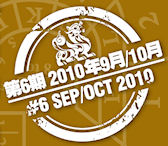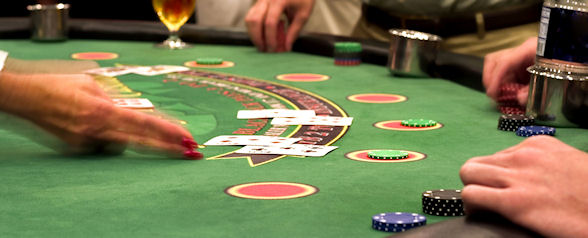This article first appeared in the Mar/Apr 2014 issue of World Gaming magazine.
Baccarat might be far and away the most popular game in Macau, but you’d be hard pressed finding any regular or occasional gambler who hasn’t mixed it up with a bit of blackjack at one time or another. In fact, even in Las Vegas where baccarat is enjoying a surge, blackjack still accounts for 51 percent of gaming tables.
 With that in mind, WGM is proud to have brought you a number of informative strategy articles on blackjack over the past four years examining the ins and outs of this popular casino game. This issue we look back at a story that first appeared in our Nov/Dec 2010 issue – Blackjack: the concept of expected value.
With that in mind, WGM is proud to have brought you a number of informative strategy articles on blackjack over the past four years examining the ins and outs of this popular casino game. This issue we look back at a story that first appeared in our Nov/Dec 2010 issue – Blackjack: the concept of expected value.
Every time you are dealt your two cards at the blackjack table and the dealer his or her upcard, your hand will have an “expected value”. That is, over the long run you can expect to win or lose a certain percentage of your original bet based on the mathematical probability of winning the hand. Sound complicated? It certainly can be but rest assured it is a concept worth understanding! Let’s step back in time and re-examine some more interesting math that may be useful to know the next time you hit the tables. Enjoy and, as always, all our past issues and articles can be found on our website, www.wgm8.com.
Our resident blackjack guru explains EV, a fundamental gaming concept understood by all expert players.
In several of our prior articles we’ve mentioned the concept of expected value (EV), and said that we’d explain it more thoroughly in a later article. The time has come.
EV has lots of names: expectation, long-run expectation, LRE, fair value or expected value. Most people tend to call it EV these days. EV isn’t a concept unique to blackjack. You find it in poker, baccarat, craps and just about every casino (and some non-casino) games. You even find it in the imprecise world of professional sports betting. It is most useful in poker and blackjack – games where significant decisions need to be made mid-way through a hand. It’s also useful in bet sizing for sports bets.

EV is best thought of as the “value right now” of something or making a particular decision. Let us give you an example. Let’s say you place a bet on a blackjack table for $1,000. As luck would have it you get dealt two picture cards for a total of 20, and the dealer has a 6 as his upcard. You’re looking good! Of course you stand on your 20. What is this hand worth at this moment? If you suddenly had to sell this hand, before the dealer drew his cards, what would be the fair price? Of course you’re not guaranteed to win $1,000, so the fair price has got to be less than $1,000, but how much less? $900? $800? Before you read on, think about it – would you sell the winnings of this hand to someone for a flat $800? Yes or no? Most people would answer no. 20 is a pretty good hand and the dealer only has a 6!
Obviously there are three possibilities here. The dealer could draw out to 21 and you unluckily lose, the dealer could draw out to 20 and you get a push (also known as a stand-off), or the dealer could get 19 or worse, and you win. I’ve run countless simulations and mathematical calculations on blackjack over more than 20 years, and I can tell you that when the dealer starts with a 6, he gets a 21 total 9.7% of the time, a 20 total 10.2% of the time, and 19 or worse the remaining 80.1% of the time. So back to our HK$1,000 bet. 80.1% of the time we win $1,000, 10.2% of the time we neither win nor lose, and 9.7% of the time we unluckily lose $1,000. The net result is that over very many hands, on average we win $704 for each time we get 20 against the dealer’s 6 with a $1,000 bet out there. Another way of thinking of this is that the EV of this situation is +70.4%. So the fair price for this hand is $704 and if someone offered you $800 (plus the original $1,000 bet of course), then you should take the $1,800 and run! It’s a $96 profit!
How is this number useful? Well, you can use it to calculate decisions. For example, some people like to split their tens when the dealer has a six. Many experienced players say they are crazy! Are they? Let’s see. We’ve already established that standing on 20 against a 6 is worth +70.4%. What if we split? We’ll have two hands of ten versus the dealer’s 6. Calculating the value of that single ten card against the dealer’s 6 is much more complicated than the previous example, because you have to calculate the EVs of all the possible hands you could get when you hit the ten. It’s far too complicated for this article, but trust us when we tell you we have crunched the numbers and it comes out that each ten, on its own, has an EV of +28.8%. Yes it’s a positive number, but not so high really. Now remember if you split you will have two of these +28.8% tens, so which would you prefer? Two things worth +28.8 each or one thing worth +70.4? Of course the one thing worth 70.4 is better, so it’s better to stick with 20 than split the tens. Don’t be greedy! (Or in fact, be greedy!) Actually it turns out that standing on 20 is better than splitting the tens against all 10 possible dealer upcards (2, 3, 4, 5, 6, 7, 8, 9, 10 and Ace) so it’s never correct to split tens (there is a very advanced exception to this rule but it doesn’t really apply in Macau). So there you have it – those ten splitters are crazy after all.
You can use EV calculations like this to work out all sorts of blackjack decisions. For example, what about when you have 12 and the dealer has a 3? Some people say to stand and some people say to hit. Who is right? We can give you the answer, the people who say hit are right. Hitting the 12 has an EV of -23.3% and standing is -25.2%. Not much in it, and you expect to lose no matter what you do, but remember money saved is just as valuable as money won. Better to lose 23.3% than to lose 25.2%. I know this isn’t much consolation when you hit the 12 and get a picture card and lose 100% of your bet! But it is a fact that in the long run you will be financially better off by hitting all your 12s against threes.
Now you understand the concept of EV better. It’s a concept understood by all expert gamblers, no matter whether they are casino gamblers, sports bettors or poker players. You don’t have to follow the decisions that EV tells you to make when you play, but I can assure you all the experts do.







